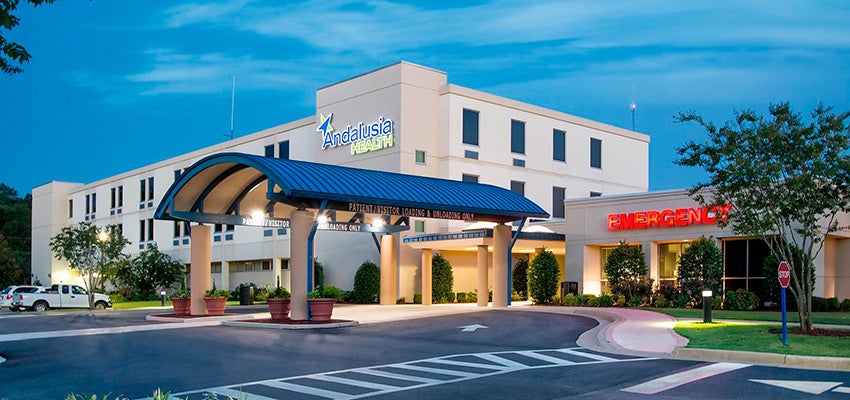Reports: Medicaid expansion would fund health care for 8.3K in region
Published 11:31 am Thursday, February 7, 2019
The Alabama Hospital Association (AHA) last week released two reports that concluded the state could generate billions of dollars in economic activity and state savings, and prove 340,000 Alabamians with heal insurance coverage by expanding Medicaid.
Alabama’s current Medicaid program is limited to children, the elderly and the disabled. Childless adults never qualify, and adults with qualifying children can only get benefits if they make 18 percent of the poverty level, about $2,963 a year for a family of two.
Medicaid expansion would allow anyone making up to 138 percent of the poverty level — up to $23,336 a year for a household of two — to receive benefits.
The report estimates about 8,300 people would get coverage in Coffee, Covington, Butler and Crenshaw counties.
And that could be important for facilities like Andalusia Health, which provided approximately $3 million in uncompensated and charity care in 2018, CEO John Yanes said.
“A large number of the patients we serve do not have health insurance, which means Andalusia Health writes off the cost for a significant portion of the needed medical care we provide to our residents,” Yanes said. “While Andalusia Health has been able to effectively manage its cost and improve efficiency, uncompensated care has taken a toll on Alabama’s hospitals. In fact, 12 Alabama hospitals closed in the last eight years, six of which were rural, and several other rural Alabama hospitals are struggling to keep their doors open.”
Yanes said other states have developed workable solutions by expanding Medicaid.
“The reports released last weekend by the Alabama Hospital Association estimate there are approximately 340,000 adults in Alabama who would be eligible for health coverage if the state expanded Medicaid,” Yanes said. “It’s important to note that two thirds of these individuals are currently working. They are caught in a very difficult position by earning too much to qualify for Alabama’s bare bones Medicaid program but not nearly enough to purchase health insurance.”
The federal government would pay for 90 percent of the proposed expansion, with the state putting up a 10 percent match.
“The federal government will provide Alabama $9 for every $1 the state invests in the program,” Yanes said. “Not only will Medicaid expansion help cover the uninsured and stabilize the state’s health care infrastructure, but it will have a significant overall economic impact on the state.”
The AHA’s numbers are based on a report by David J. Becker, Ph.D., UAB School of Public Health, that explored the ripple effect of the influx of federal dollars.
Building on the evidence from states that have already expanded their Medicaid programs, Manatt, a national consulting firm, released a report that affirms Dr. Becker’s enrollment estimates and adds to it the potential for state savings
Alabama is currently one of only 14 states that have not expanded Medicaid.
“Alabama’s hospitals are scheduled to lose $119 million in federal funding unless Congress takes action,” said Owen Bailey, chairman of the board of the Alabama Hospital Association and CEO of USA Health. “Those are critical dollars for us as our hospitals currently spend more than $500 million each year in care for which they receive no reimbursement.
Yanes said Andalusia Health plays a critical role in the local community and its economy.
“Hospitals are a critical part of our state’s infrastructure, just like roads and schools,” he said. “By expanding Medicaid we can help ensure access for all of us. At the same time, we can reap substantial dividends in terms of the additional economic impact it would have on our local community and state.
“In addition to the essential medicals service provided by Andalusia Health, including emergency care, the only obstetrical provider in the county, surgical services and diagnostic services, Andalusia Health contributes to the local economy as one of the largest employers in the community. Hospitals also help to create other health related jobs such as pharmacies, home health agencies, skill nursing facilities.”
As the only tax paying hospital in the county, Yanes said, Andalusia Health contributes more than $500,000 in local sales and property taxes and an additional $230,000 in state taxes.





